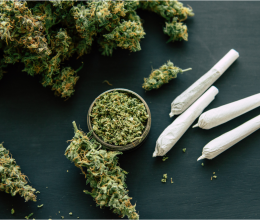
Senate Judiciary Committee moves forward clean-up effort to address possession and use by young people
Following a yes vote in the Senate Judiciary Committee, the ACLU-NJ urged lawmakers to send a bill to Gov. Murphy’s desk that will reconcile details of youth consequences for cannabis use and possession, as well as consequences for selling to youth.
The legislation would clarify consequences for youth possession and use, including:
- For youth under 21, a written warning for the first offense, information about services for the second offense, and referrals to services for third and subsequent offenses, along with alignment of youth consequences for alcohol with this new framework
- Removal of license suspensions
- Limitations on searches of youth by law enforcement
- Reporting on the use of youth consequences for cannabis and alcohol possession and use every six months by the Office of the Attorney General
This bill would accompany two main bills that are awaiting Gov. Murphy’s signature: S21/A21 to legalize cannabis, with a significant portion of revenue going toward community reinvestment, and S2535/A1897, a bill decriminalizing possession of up to 6 ounces of marijuana, ending the majority of marijuana-related arrests.
The following statement can be attributed to ACLU-NJ Policy Director Sarah Fajardo:
“In the three months since voters said yes to legalizing cannabis, over six thousand marijuana arrests have been made. We need New Jersey to put legalization and decriminalization into effect as soon as possible to end the harms of prohibition. We thank lawmakers for moving this legislation forward today, and we urge the full Legislature to pass it as quickly as possible.
“We can only begin to end the racial disparities of marijuana arrests and build a new cannabis market by putting legalization and decriminalization into law. This clean-up bill will help move this process forward.
“We must ensure that no one is ensnared in a criminal legal system marked by inequities, and that includes young people. We know that a punitive approach causes lasting harms, without deterring use, and we believe this legislation takes an important step away from that model.
“No matter what, a number of policy questions will remain even after legalization and decriminalization have gone into effect – and, the sooner we start putting these laws into place, the sooner we can begin working to improve the system that arises from it to ensure that it is centered in justice and equity for those who have been most harmed by our current laws.
“We thank the committee for bringing cannabis legalization and decriminalization closer to the finish line, and we will continue working to reduce the harms of our current cannabis laws across the state.”




